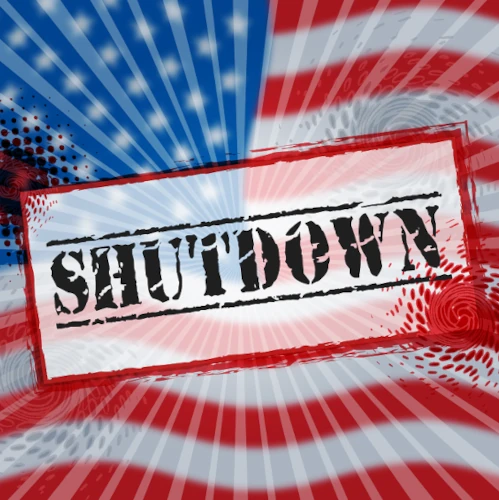When we asked disability advocate Eman Rimawi-Doster if she was worried about the prospect of a government shutdown, she didn’t mince words.
“This potential shutdown is going to be extremely dangerous for people with disabilities of all kinds,” she answered via email. “And it isn’t just dangerous for those who have Medicaid or SSDI. This is dangerous for anyone who needs anything from the government. I fear for our community if this happens.”
A bilateral amputee who has represented New York City’s disability community in multiple roles, Rimawi-Doster is hardly the only one sounding the alarm. Zoe Gross, who leads a national organization for people with autism, told Disability Scoop: “This will definitely impact our community. A significant number of federal actions that are important to the lives of everyday people with disabilities will happen more slowly or be on hold for the duration of a shutdown.” Disability advocate David Goldfarb chimed in: “Government programs for people with disabilities are already underfunded for the level of need, and a shutdown would only worsen this situation.”
So, time to panic? We surveyed a range of news sources to gauge the degree of harm that a shutdown might inflict on amputees and other people with disabilities. We focused on large federal programs that serve tens or hundreds of thousands amputees, covering such basic needs as housing, healthcare, and daily living expenses. Given the vast scope of the federal government, we undoubtedly missed some smaller programs that might be affected by a funding pause. If a shutdown does occur and you lose access to federal benefits that we’ve overlooked here, please send us an email: editor@livingwithamplitude.com.
Rimawi-Doster is crossing her fingers that Congress can get a funding bill passed at the 11th hour. “My hope is that the government works out their differences and issues and come together for the citizens they serve,” she wrote. “They are public servants who we the people elected, and they have a responsibility and a duty to us to make sure a shutdown doesn’t happen.”
Will I continue to receive Social Security Disability Insurance and Supplemental Security Income checks?
According to the American Association of Retired People (AARP), all Social Security benefits—including SSDI and SSI—will continue to be paid on schedule. “[Social Security benefits] have a permanent funding source and are not subject to the annual appropriations process,” AARP explains. But the organization adds: “While key functions will continue, some services might be curtailed depending on how long a shutdown would last.”
“Our assumption is that the most impacted part of Social Security is going to be the disability program,” Maria Freese, an official at the National Committee to Preserve Social Security and Medicare, told CNBC. In particular, Freese said that some aspects of claims processing—including hearings, appeals of denied claims, and benefit verification letters—may grind to a halt. “The backlogs in the disability program are likely to get bigger,” Freese told the network. If a shutdown gets resolved in a few days, the impact is likely to be negligible. But the longer it goes on, the larger the impact will be—lengthier delays, affecting more recipients, with a longer time frame until the logjam gets cleared.
What about my veterans benefits?
Veteran.com reports that programs payments supporting disabled veterans, including VA Disability and Servicemembers’ Group Life Insurance, will issue checks as per usual. “The system is built to ensure veterans’ benefits remain uninterrupted, even during these challenging times,” notes HIll & Ponton, a national law firm specializing in veterans and SSDI claims. “While other areas may face fiscal interruptions, veterans’ benefits continue undisturbed.”
However, Veteran.com notes, “support for claims and assistance may be limited—meaning if you need to call an agency or department, the people who work there may be furloughed, and you may not get the information needed or the request processed.” Elaborating on that theme, Hill & Ponton warns: “The major concern for the government shutdown is for veterans that are applying for benefits, filing for an appeal, or wanting to file a claim.” If a government shutdown were to occur, it would potentially stall all of these claims from being processed.”
Department secretary Denis McDonough added that VA regional centers would close in the event of a shutdown, along with career counseling, transition services, and other programs.
How will Medicare and Medicaid be affected?
Today’s Washington Post reports that “Medicare benefits will not be affected, and Medicaid has full funding for the next three months.” Routine doctor’s appointments, emergency care, and hospital services will operate on a regular basis. Pharmacy services will also continue to run on autopilot, so don’t worry about losing access to essential medications.
That’s the good news. The bad news, per the Post, is that more than half of the Centers for Medicare & Medicaid Services’ workforce would be furloughed for the duration of a shutdown, and that would cause massive administrative delays that affect lots of Americans. During the 1995-1996 shutdown, which lasted 21 days, more than 100,000 Medicare applications were held up, and the pace of reimbursement to doctors and hospitals slowed to a trickle.
Any impact on housing and food assistance?
If a shutdown gets speedily resolved, no worries. But if it drags on? Worries. The National Alliance to End Homelessness warns that a prolonged shutdown could imperil HUD rental assistance. The Washington news site DCist notes that the Supplemental Nutrition Assistance Program (SNAP) is only funded through October; while only one shutdown in US history has lasted more than 30 days, it was the most recent one (2018-19). So it can’t be assumed the government will reopen before the money runs out.
Fun fact: no shutdown in the republic’s first 200-plus years exceeded three days, but within the last 28 years, three closures have lasted two weeks or more. . . . .
